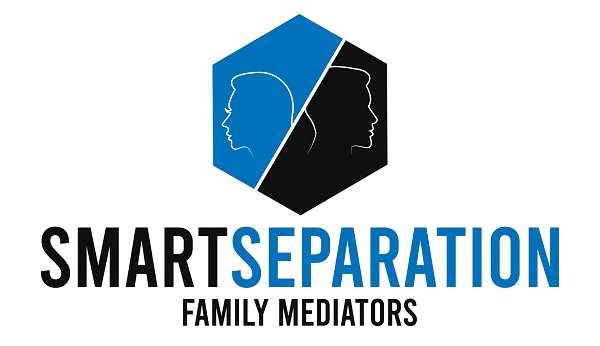Qualifications and Experience
When selecting a family mediator in Ontario, it’s crucial to consider their educational and professional background as well as their experience with specific family issues. This ensures that the mediator is well-equipped to handle the complexities of your particular situation and can guide you effectively towards a resolution.
Educational and Professional Background
A competent family mediator in Toronto should possess a strong foundation in conflict resolution, typically underpinned by formal education in law, psychology, or social work. In Ontario, look for mediators who hold certifications from recognized bodies such as the Ontario Association for Family Mediation (OAFM) or Family Mediation Canada (FMC). These certifications confirm that the mediator has completed specific training in family mediation and adheres to a professional code of conduct.
Experience with Specific Family Issues
The relevance of a mediator’s experience cannot be overstated, especially when it involves specific family issues such as child custody, support payments, or property division.
For example, if your primary concern is child custody, a mediator with extensive experience in crafting parenting plans and dealing with children’s needs during a separation can be invaluable. Similarly, if you are dealing with complex property division, a mediator who understands the financial aspects of family law and has experience in high-asset mediations might be preferred.
Mediator’s Approach and Style
Selecting the right family mediator in Ontario involves understanding not only their qualifications and experience but also their mediation style and philosophical approach. These elements can significantly influence the dynamics of the mediation process and the effectiveness of the outcomes achieved.
Understanding Different Mediation Styles
Family mediators often employ different styles and approaches, each suited to varying types of conflict and party dynamics. The most common styles include:
- Facilitative Mediation: This style is perhaps the most traditional, where the mediator assists the parties in discussing their issues and finding their own solutions without suggesting outcomes or providing personal opinions.
- Evaluative Mediation: Here, the mediator plays a more directive role, providing opinions and sometimes suggesting outcomes based on their understanding of the law and the facts presented.
- Transformative Mediation: This approach focuses on changing the relationship between the parties, emphasizing empowerment and recognition throughout the dispute resolution process, aiming to transform the parties’ interaction patterns.
If you are looking for practical solutions and appreciate direct advice, an evaluative mediator might be suitable. Conversely, if improving the relationship is a priority, a transformative mediator could be more beneficial.
Mediator’s Philosophy and Methodology
A mediator’s underlying philosophy and methodology can deeply impact how they handle the mediation process. For example, mediators who believe in the power of restoring relationships might focus more on dialogue and emotional reconciliation, while those who prioritize legal outcomes may focus strictly on dividing assets and determining support payments efficiently.
If your objective is to preserve a cooperative parenting relationship post-separation, you’ll likely benefit from a mediator who values emotional healing and relationship dynamics. Conversely, if your primary focus is on fair and swift resolution of financial matters, a mediator with a more evaluative and legally focused approach may be preferable.
Reputation and Reviews
Researching Mediator’s Reputation
Here’s how to gather information about a mediator’s standing in the community:
- Online Reviews and Testimonials: Begin by checking online platforms where clients leave reviews about their experiences with mediators. Websites like Google, Yelp, and even specific legal service review sites can offer unfiltered insights into how mediators operate and the outcomes they facilitate.
- Professional Websites: Visit the mediator’s professional website and look for a testimonials section where previous clients share their experiences. Also, check for any professional accolades or recognitions that could indicate a respected standing in the field.
- Legal Forums and Community Boards: These platforms often feature discussions about local services, including family mediation. Here, you can find candid feedback and stories shared by individuals who have gone through the mediation process.
Referrals and Recommendations
Here’s how to utilize referrals effectively:
- From Family and Friends: Ask relatives and friends if they know any reputable mediators they would recommend. Personal experiences shared by people you trust can be invaluable in finding someone who has proven capable in similar situations.
- From Legal Professionals: If you have contact with legal professionals, such as lawyers or paralegals, ask for their recommendations. As insiders in the field, they can refer you to mediators with solid reputations and relevant specializations. They might also provide insights into the mediators’ methodologies and success rates.
- Through Professional Associations: Contact organizations like the Ontario Association for Family Mediation. Such organizations can provide lists of accredited mediators who adhere to professional standards and ethical guidelines.
Cost and Accessibility
Understanding Mediation Fees
Family mediation costs can vary widely depending on several factors including the mediator’s experience, the complexity of your case, and the length of the mediation process. Here’s how to navigate the cost structures:
- Typical Cost Structures: Most family mediators charge either an hourly rate or a flat fee for their services. Hourly rates are common and can range significantly based on the mediator’s qualifications and the location. Some mediators may offer a flat rate for a complete mediation package which includes a predetermined number of sessions and follow-up support.
- Evaluating and Comparing Fees: When comparing fees, it’s important to consider what is included in the cost. Ask potential mediators for a detailed breakdown of their fees and what services they cover. Ensure there are no hidden costs such as additional charges for documentation or cancellation fees. Comparing this information will help you understand the overall value offered by different mediators.
Location and Availability
The practical aspects of a mediator’s location and their availability can also impact your experience and access to their services.
- Importance of Convenient Location: Choosing a mediator who is conveniently located near your home or workplace can reduce travel time and stress, making the mediation process more manageable. This is particularly important if multiple sessions are required.
- Considerations for Scheduling and Availability: Availability is another critical factor. Some mediators may have long wait times or limited availability. Look for a mediator who can accommodate your schedule. Flexible mediators who offer sessions outside of regular business hours, such as evenings or weekends, can be particularly beneficial for working professionals.
Initial Consultation
The initial consultation with a family mediator is a critical step in determining whether they are the right fit for your specific needs in Ontario. This meeting provides an opportunity to ask important questions and assess the mediator’s compatibility with your situation.
What to Expect During the Consultation
An initial consultation typically serves as a meet-and-greet session where you can discuss your situation, understand the mediator’s approach, and ask key questions. Here’s what to focus on during this meeting:
- Key Questions to Ask: Inquire about the mediator’s experience with cases similar to yours, their mediation style, and what you can expect from the process. Ask about their success rates and how they handle situations where parties are particularly contentious.
- Assessing the Mediator’s Fit: Use this opportunity to determine if the mediator’s qualifications and personality align with your needs. Questions about their approach to sensitive issues and how they ensure neutrality can help you gauge whether they’ll handle your case effectively.
Evaluating Comfort and Compatibility
The relationship you build with your mediator influences the effectiveness of the mediation process. Here’s how to evaluate these essential aspects:
- Importance of Comfort and Respect: It’s vital that you feel comfortable and respected by the mediator. The initial consultation should leave you feeling understood and confident in the mediator’s ability to handle your case. Pay attention to how the mediator listens to you and responds to your concerns.
- Gauging Communication Style and Professionalism: The mediator’s communication style is crucial. They should be clear, patient, and professional. Notice whether they explain terms and processes in a way that you understand and whether they seem genuinely interested in helping you resolve your issues.
Making the Final Decision
Weighing Your Options
Before making a final decision, take the time to reflect on all the information you’ve gathered from various mediators. Here’s how to compare them effectively:
- Comparison Criteria: Create a list of criteria that are important to you, such as the mediator’s experience, cost, location, availability, and the rapport you felt during the consultation. Rate each mediator on these criteria based on your interactions and the information they provided.
- Pros and Cons: For each mediator, list the pros and cons as per the criteria you’ve established. This exercise can help clarify which mediator offers the best balance of expertise, cost-effectiveness, and personal compatibility.
Trusting Your Instincts
Choosing a mediator often involves not just logical assessment but also emotional intuition:
- Following Your Intuition: Your gut feeling plays an important role in this decision. Consider how you felt during the consultation – were you comfortable, did you feel heard, and do you trust the mediator’s capability to handle your case?
- Emotional Readiness: Since mediation involves discussing personal issues, it’s important that you feel emotionally safe and supported by the mediator. Trust your instincts about whom you believe can best facilitate a respectful and understanding environment.
Final Steps to Confirm Your Choice
Once you’ve made a decision based on thorough evaluation and instinct:
- Confirm the Mediator’s Availability: Ensure that the mediator is available to start the process at a time that suits you. It’s important to align on scheduling to avoid any delays once the mediation process begins.
- Formal Agreement: Typically, mediators provide a mediation agreement or contract that outlines the scope of services, confidentiality agreements, and the fees structure. Review this document carefully, and ensure all your agreed terms are documented.
- Prepare for Mediation: Gather all necessary documents and information that you might need for the mediation sessions. Entering mediation well-prepared can facilitate a smoother process.
As an experienced family and divorce mediator in Toronto, I often write blogs to provide insights, tips, and resources on family mediation and divorce in Ontario. Follow my blog to stay informed and empowered during challenging times.



